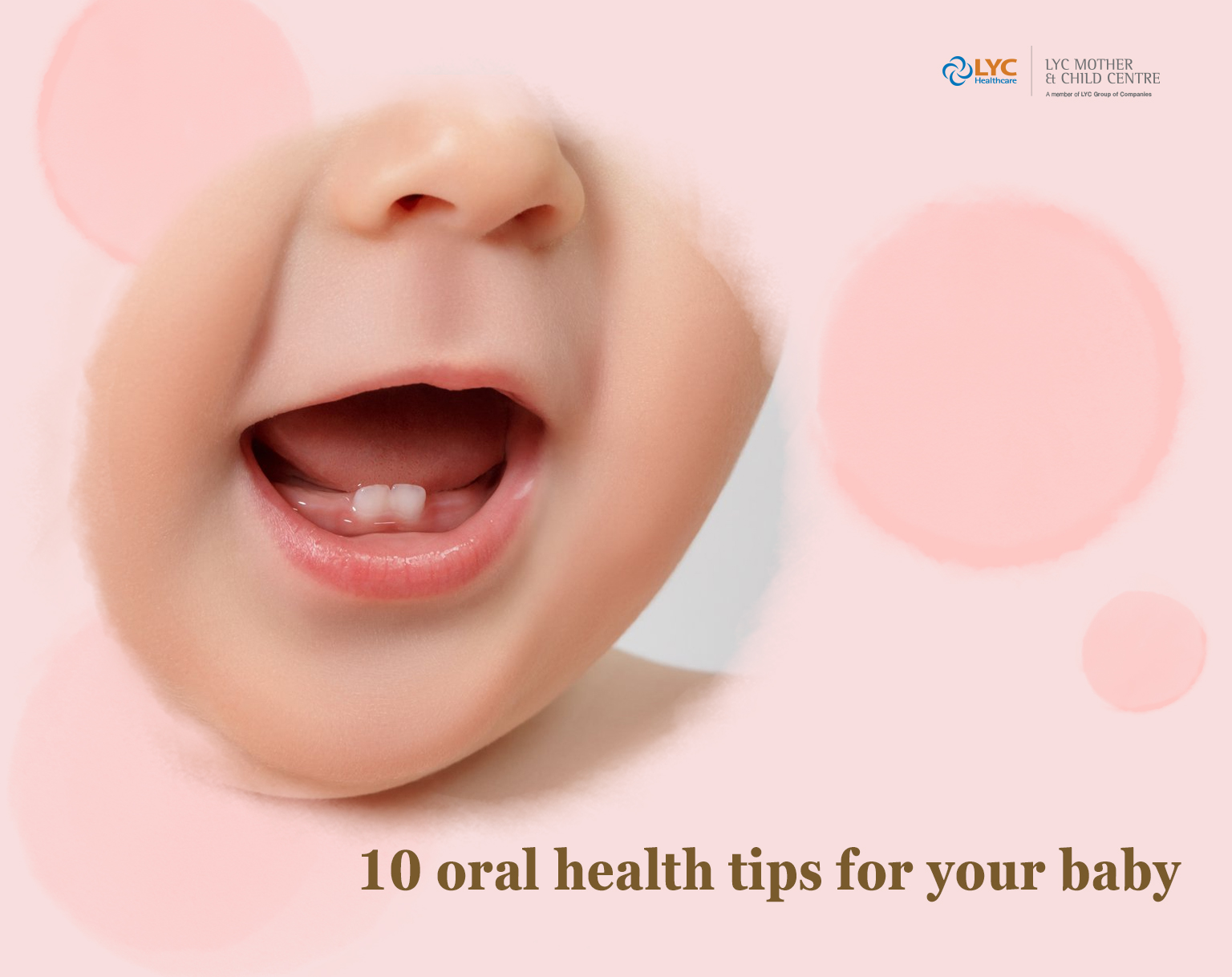
It is very important to help babies develop good oral health habits from an early age. Here are 10 tips on how to maintain your baby's oral health to ensure that they develop a beautiful and healthy smile from an early age.
For the first 6 months, breast milk or infant formula provides all the nutrients your baby needs. Remove your baby’s mouth from the breast or bottle at the right time after your baby has finished feeding.
When babies fall asleep with a bottle, some of the milk remains in their mouth and on their teeth, which can lead to tooth decay and also increases the risk of choking and infection, so it is advised not to put a baby to bed with a bottle.
Between 6 and 12 months, babies can switch from a bottle to a drinking cup. In fact, when babies are 12 months old, they should only drink from a cup.
Water should be your child's drink of choice, make sure they drink enough boiled water every day. For babies under 12 months, tap water should be boiled and cooled before drinking. In fact, most tap water in our country is fluoridated, which helps prevent tooth decay.
Milk is the best source of calcium for strong teeth. Babies under 12 months should drink breast milk or infant formula, while children 1 to 2 years old can drink whole milk. After 2 years old, low-fat milk is suitable. Flavoured milk may have added sugar, which contributes to tooth decay.
Fruit juice and sweet drinks can cause tooth decay and are not recommended for babies under 12 months. It's important to note that "no sugar added" fruit juices still contain natural sugars, which can also lead to tooth decay. Sweet beverages to avoid include soft drinks, fruit juices, sports drinks, energy drinks, and more.
From 12 months of age, babies should enjoy a variety of healthy foods. They learn how to eat by watching their parents and other family members, so it's important to set a good example and develop healthy habits.
You can start cleaning your baby's teeth as they erupt, wiping them with a soft cloth or brushing gently with a small toothbrush. At 18 months, you can start brushing your baby's teeth with a low-fluoride toothpaste, making sure they spit out the toothpaste after brushing. Babies need an adult to help them brush their teeth twice a day until they are 7 years old.
Have your baby's first oral health assessment before the age of 2 and have regular dental check-ups from then on to prevent any dental problems and treat them early.
Babies are born without the bacteria that cause tooth decay. In fact, it is the parents and caregivers who often pass this bacteria on to the baby. To help prevent this, everyone in the family should brush their teeth twice a day, and get regular dental checkups so cavities can be treated promptly.